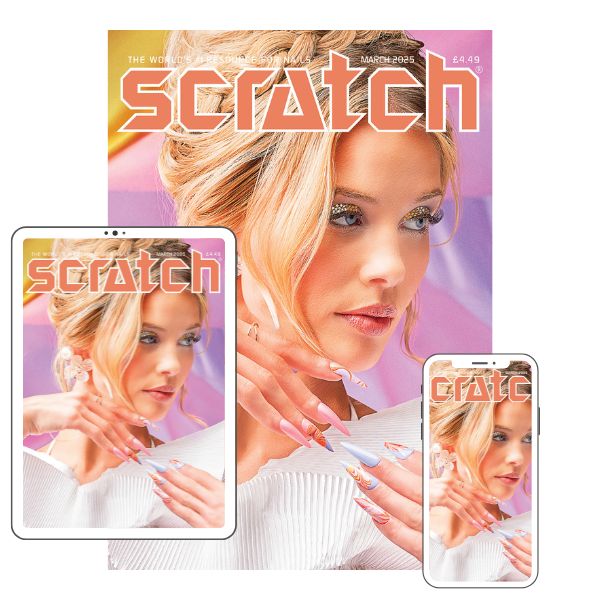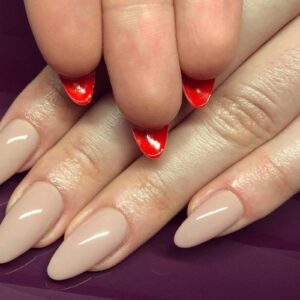
What it means to have half moons on your nails
By Katie Barnes | 02 November 2024 | Expert Advice, Feature
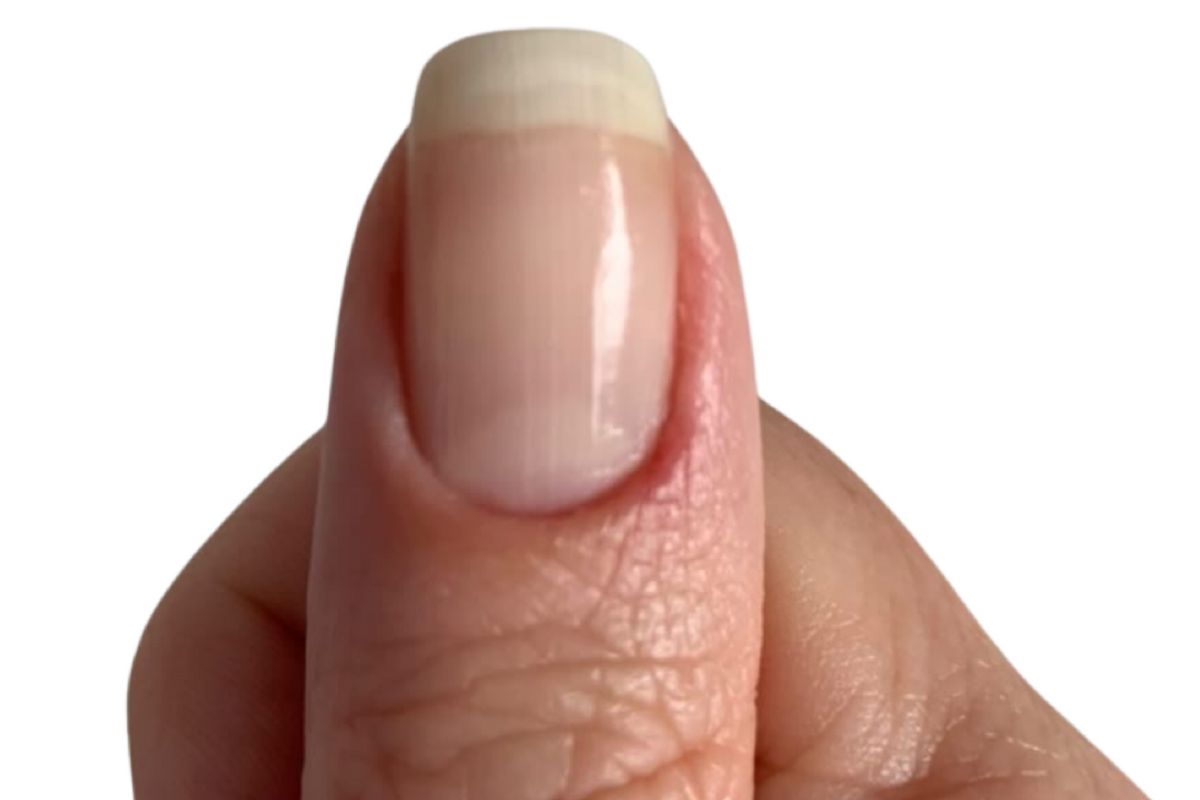
Fingernail half moons are the rounded, white shadows at the base of the nails. The industry term for this is lunula, which is Latin for ‘little moon’.
The place where each nail begins growing is known as the matrix. This is where new cells are made that will make up the nail. The lunula is part of the matrix.
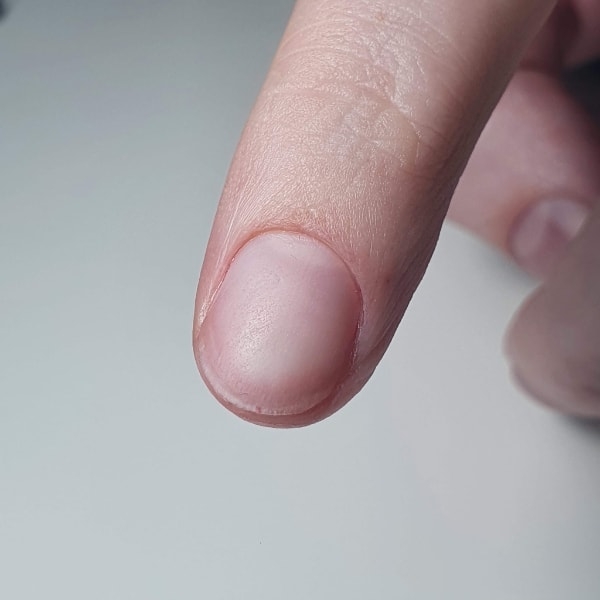
The lunula is the visible portion of the distal nail matrix that extends beyond the proximal nail fold. It has unique histologic features, with a primary structural role in defining the free edge shape of the distal nail plate.
The shape of the lunula determines the free edge shape of your nail and damage to this will define the shape. If you’ve ever wondered if your natural nail shape is round or square, take a look at the lunula on your nails.
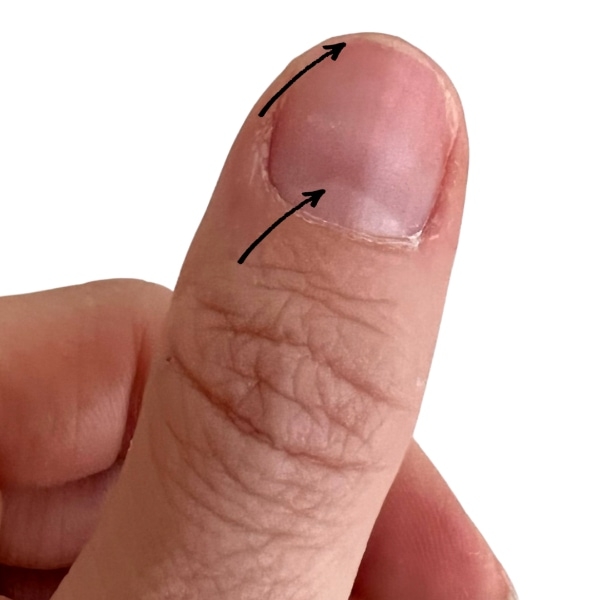
If you look at the lunula in this image, just to the left of the centre, you will see a slight point. If you look to the free shape, you will see this point mirrored in the free edge. This demonstrates how the lunula determines the shape of that free edge.
The lunula can be a great guide in shaping a free edge on a client – as the shape of the lunula reflecting the shape of the free edge will be a guaranteed way of creating a nail shape to suit that nail.
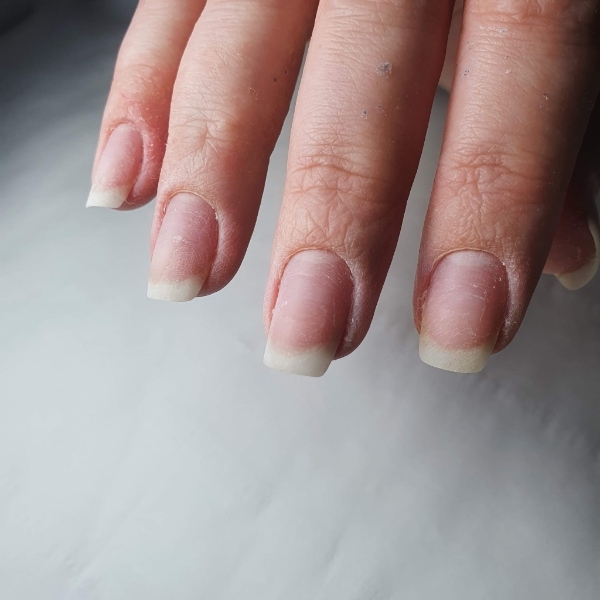
Although everyone has a nail matrix, not everyone will see or have a lunula on each nail. Nails that do have a lunula may vary in appearance from nail to nail and client to client.
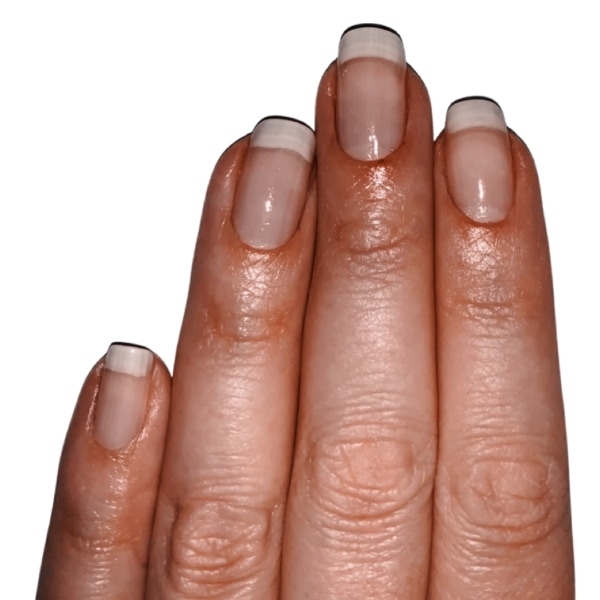
The lunula is most prominent on thumbnails and you may notice that the lunula appears smaller on the index finger, gradually shrinking in size until you reach the pinkie where it may be barely visible.
If you don’t have a visible lunula, it simply means that the matrix is sitting lower on that nail. The more prominent it is, the higher the matrix is usually sitting.
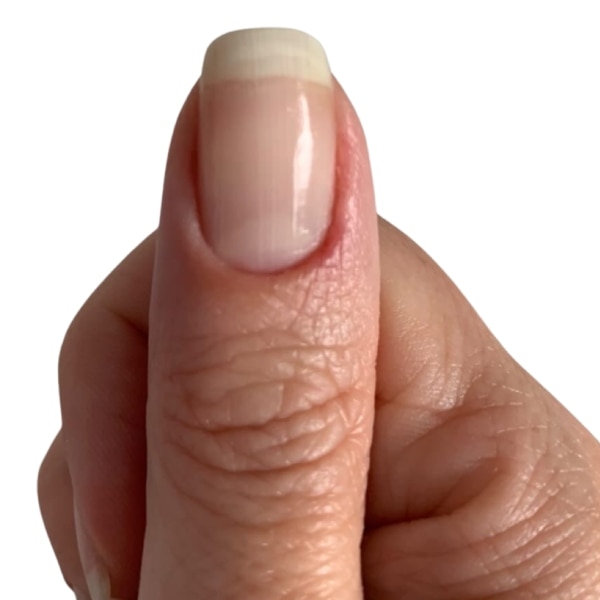
Small or missing lunula usually aren’t a cause for concern. They’re usually just hidden underneath the cuticle or skin at the base of the finger, especially on nail biters or clients who may have more cuticle growth build-up than the typical client.
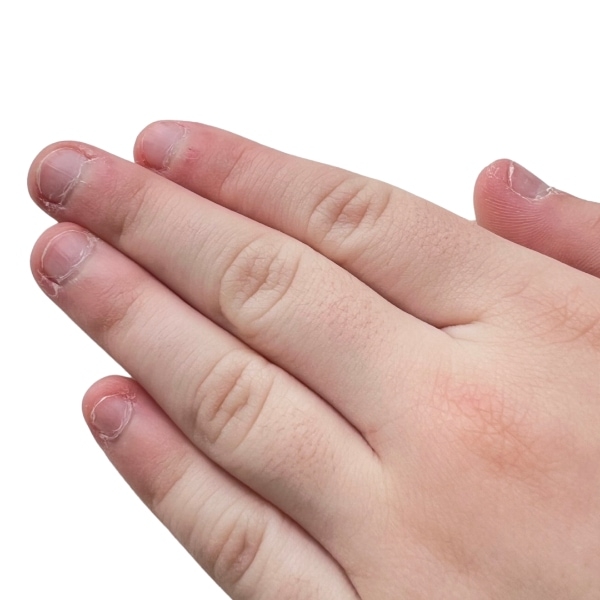
On clients that pick their cuticles, the lunula may be more prominent, as the cuticle has been compromised and more of the lunula and nail plate are on show.
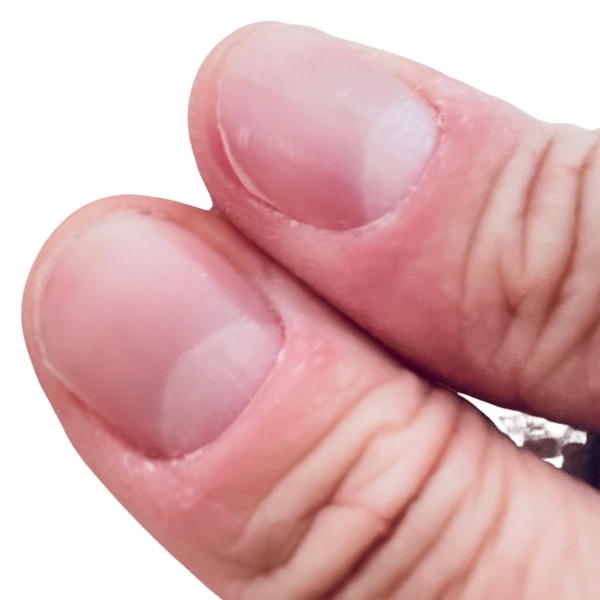
It is important to remember that if you’re seeing changes to the shape or colour of the lunula on your clients, along with other symptoms, it can be good practice to recommend they visit their GP to check for an underlying health condition.
Love Katie B x

Read the latest issue
